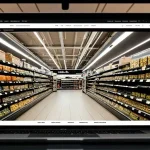Immediate economic consequences for UK businesses
Understanding the shifting landscape post-Brexit
Since Brexit, the Brexit economic impact on UK firms has proven multifaceted. The post-Brexit economy reveals a fluctuating environment with changes in trade arrangements and supply chains influencing business strategies. UK business performance shows variation, notably with export complexities increasing costs and lead times.
Have you seen this : Top financial tactics for launching uk startups in 2024: a comprehensive guide
Sectors such as manufacturing, finance, and retail face pronounced shifts. Manufacturing encounters raw material delays and tariffs, directly affecting production schedules and profit margins. Finance experiences regulatory divergence, influencing cross-border services and investment flows. Meanwhile, retail must navigate altered consumer preferences and logistical challenges.
Recent data highlights slower growth rates in some UK regions but growth opportunities arise through new trading partnerships outside the EU. Projections suggest companies adapting to post-Brexit realities—such as diversifying suppliers or reshaping product lines—are better positioned. This evolving scenario demands agile responses, reflecting that the Brexit economic impact continues to shape UK business performance substantially.
Also to discover : Strategies for startups to flourish in the competitive uk business arena
UK businesses assessing future steps should closely monitor policy shifts and market trends to capitalize on emerging prospects while mitigating risks associated with the post-Brexit economy.
Legal and regulatory changes shaping business operations
Navigating Brexit legal changes is essential for businesses trading between the UK and EU. Post-Brexit, new trade agreements and customs procedures significantly impact import and export operations. Companies now face additional customs declarations, tariffs, and stricter product standards, requiring more meticulous compliance efforts.
The shift in UK-EU regulations means businesses must adhere to separate regulatory frameworks. For example, product safety certifications that were previously unified now demand dual approvals—one for the UK market and another for the EU. This dual system increases administrative complexities and costs, so understanding these nuances is crucial for seamless cross-border operations.
Employee rights and immigration rules have also evolved due to Brexit legal changes. Businesses employing cross-border staff face new visa requirements, work permits, and residency documents. Staying compliant with these immigration policies ensures workforce stability and avoids legal penalties. Businesses are advised to regularly review updated guidance on employee rights and cross-border staffing.
Overall, adapting to these changing rules demands proactive compliance management and regular legal reviews to maintain smooth business operations in the post-Brexit landscape.
Supply chain restructuring and challenges
Brexit supply chain changes have significantly affected import/export disruption across the UK. Many businesses now face delays and increased costs when sourcing materials or products. These issues largely stem from new customs checks, paperwork, and regulatory differences introduced after Brexit, impacting logistics UK-wide.
To adapt, companies have developed several strategies. Some diversify suppliers to reduce dependence on EU sources, while others build up local inventories to mitigate lead-time variability. Technology adoption for supply chain visibility has also become crucial, enabling better anticipation of delays and smoother coordination.
Industries like automotive, food, and pharmaceuticals have been especially affected. Car manufacturers slowed production due to parts delays, while food retailers grappled with freshness challenges caused by border holdups. Pharmacy supply chains have had to navigate new compliance requirements carefully.
Navigating this new landscape means embracing proactive planning and agility. Companies investing in logistics UK innovation and local partnerships tend to manage Brexit supply chain challenges more effectively. Understanding these shifts helps businesses remain competitive despite ongoing trade complexities.
Real-world case studies: business adaptations and innovations
Businesses across the UK have demonstrated remarkable adaptation strategies following Brexit. A notable example involves manufacturers who streamlined supply chains to minimize border delays, showing how thoughtful logistics adjustments can mitigate new trade challenges. Innovation post-Brexit often means embracing digital tools; several UK firms invested in e-commerce platforms to access wider markets despite tariff changes.
Some UK business Brexit cases reveal firms shifting their operational base or creating partnerships within the EU. These moves aim to retain market access while navigating regulatory divergence. However, not all adaptation strategies yield immediate success—smaller businesses sometimes face cash flow issues or compliance complexities that slow their response. Their experiences underline the importance of early planning and seeking expert support.
Comparatively, EU-based businesses also adapted by reconfiguring supply networks and diversifying exports. Yet, unlike many UK enterprises, they typically faced fewer customs barriers. This contrast highlights how UK business Brexit cases often required more profound structural changes to sustain competitiveness.
By studying these real-world examples, businesses can glean practical insights into innovation post-Brexit and craft robust strategies for future resilience.
Expert perspectives: actionable advice for UK businesses
Industry leaders repeatedly emphasize the importance of business resilience amid ongoing economic shifts. Brexit expert advice consistently highlights that UK businesses should focus on diversified supply chains to mitigate disruption risks. For instance, relying on multiple suppliers across different regions can reduce vulnerability to unexpected trade barriers.
Another actionable insight UK companies should heed is investing in digital transformation. Embracing technology not only streamlines operations but also opens new markets, enhancing adaptability against uncertain conditions. Experts advise prioritizing cash flow management to maintain financial health during volatile periods.
Strategic engagement with government programs and trade organizations offers essential support channels. These include export guidance, funding schemes, and networking opportunities tailored specifically for UK businesses navigating post-Brexit challenges. Additionally, seeking tailored Brexit expert advice ensures that decisions are informed by the latest regulatory changes.
In summary, UK businesses can capitalize on opportunities by enhancing operational flexibility, leveraging technology, and accessing expert resources. This approach strengthens business resilience and positions companies to thrive despite ongoing transitions, rooted firmly in actionable insights UK businesses can confidently implement.
Key takeaways and future outlook for UK businesses
Brexit has reshaped the landscape, making a clear Brexit business summary essential for UK companies aiming to adapt. Ongoing challenges include supply chain disruptions, regulatory divergence, and changes in trade tariffs. Nevertheless, opportunities arise in new trade agreements and localized innovation. Understanding these shifts is crucial for the future of UK business.
Forecasts suggest that businesses embracing digital transformation and flexible supply chains will fare better post-Brexit. Sectors like technology and green energy are poised for growth, highlighting areas for strategic investment. Monitoring evolving trade policies and seeking expert guidance can help mitigate risks.
In terms of business planning post-Brexit, companies should focus on resilience and agility. This means diversifying suppliers, investing in workforce skills, and reviewing compliance requirements regularly. Incorporating Brexit’s long-term impacts into financial models will provide more accurate projections.
By proactively addressing these aspects, UK businesses can position themselves to succeed amid uncertainty. Strategic foresight combined with operational adjustments remains key to navigating Brexit’s continued evolution. These insights form the foundation for confident decision-making and sustainable growth.


